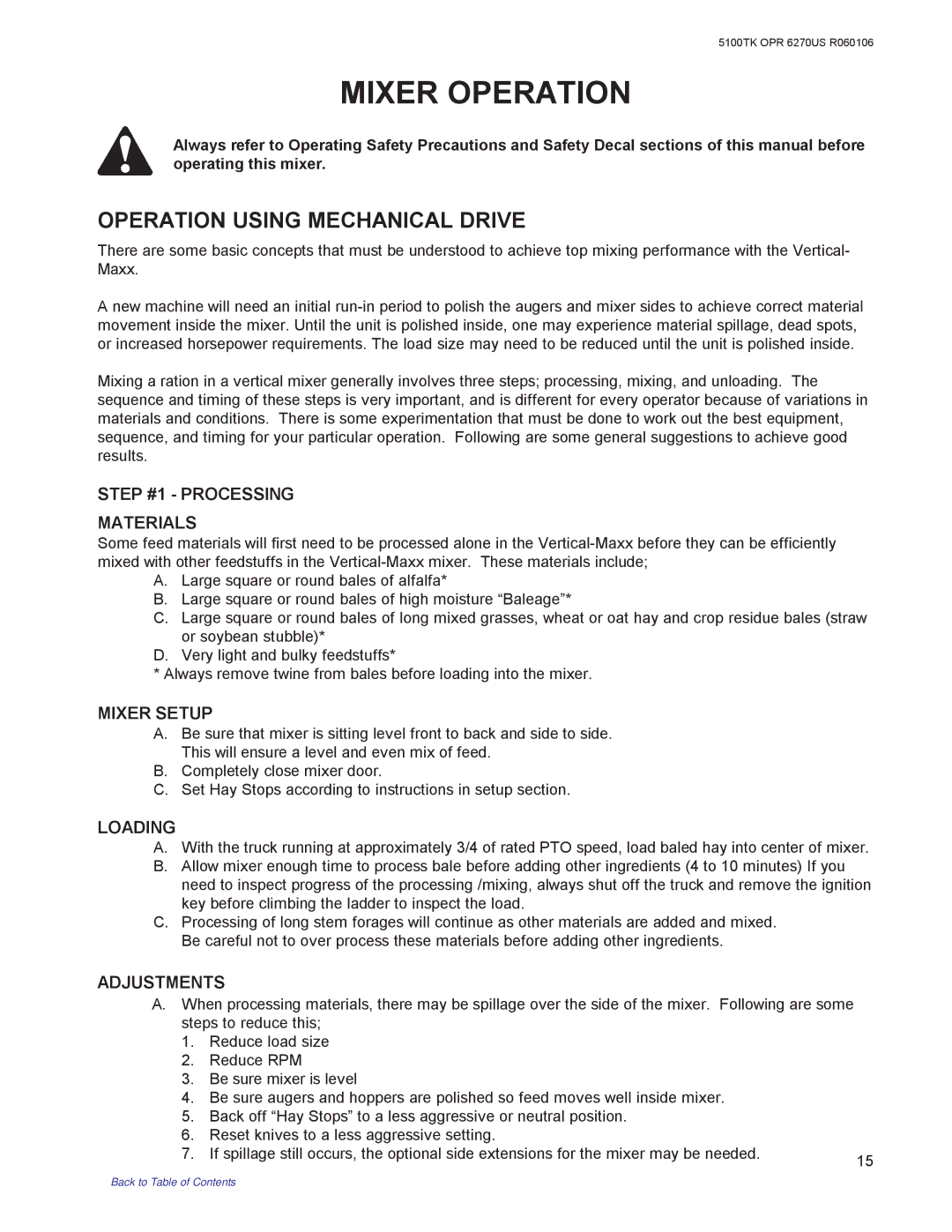5100TK OPR 6270US R060106
MIXER OPERATION
Always refer to Operating Safety Precautions and Safety Decal sections of this manual before operating this mixer.
OPERATION USING MECHANICAL DRIVE
There are some basic concepts that must be understood to achieve top mixing performance with the Vertical- Maxx.
A new machine will need an initial
Mixing a ration in a vertical mixer generally involves three steps; processing, mixing, and unloading. The sequence and timing of these steps is very important, and is different for every operator because of variations in materials and conditions. There is some experimentation that must be done to work out the best equipment, sequence, and timing for your particular operation. Following are some general suggestions to achieve good results.
STEP #1 - PROCESSING
MATERIALS
Some feed materials will first need to be processed alone in the
A.Large square or round bales of alfalfa*
B.Large square or round bales of high moisture “Baleage”*
C.Large square or round bales of long mixed grasses, wheat or oat hay and crop residue bales (straw or soybean stubble)*
D.Very light and bulky feedstuffs*
* Always remove twine from bales before loading into the mixer.
MIXER SETUP
A.Be sure that mixer is sitting level front to back and side to side. This will ensure a level and even mix of feed.
B.Completely close mixer door.
C.Set Hay Stops according to instructions in setup section.
LOADING
A.With the truck running at approximately 3/4 of rated PTO speed, load baled hay into center of mixer.
B.Allow mixer enough time to process bale before adding other ingredients (4 to 10 minutes) If you need to inspect progress of the processing /mixing, always shut off the truck and remove the ignition key before climbing the ladder to inspect the load.
C.Processing of long stem forages will continue as other materials are added and mixed. Be careful not to over process these materials before adding other ingredients.
ADJUSTMENTS
A.When processing materials, there may be spillage over the side of the mixer. Following are some steps to reduce this;
1.Reduce load size
2.Reduce RPM
3.Be sure mixer is level
4.Be sure augers and hoppers are polished so feed moves well inside mixer.
5.Back off “Hay Stops” to a less aggressive or neutral position.
6.Reset knives to a less aggressive setting.
7. If spillage still occurs, the optional side extensions for the mixer may be needed. | 15 |
|
Back to Table of Contents
